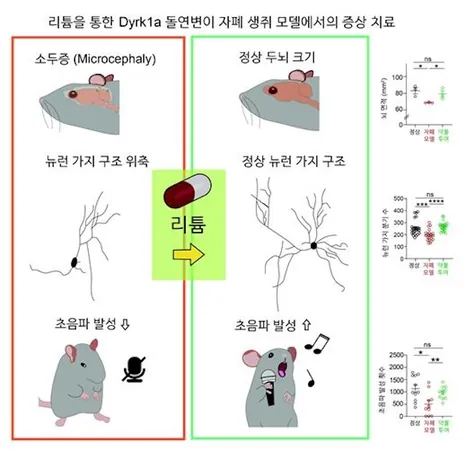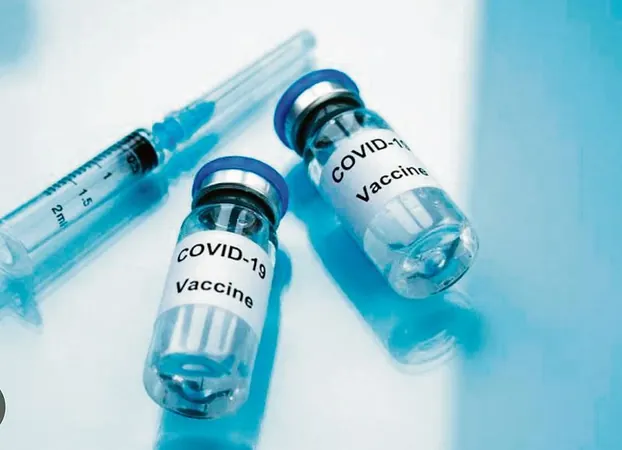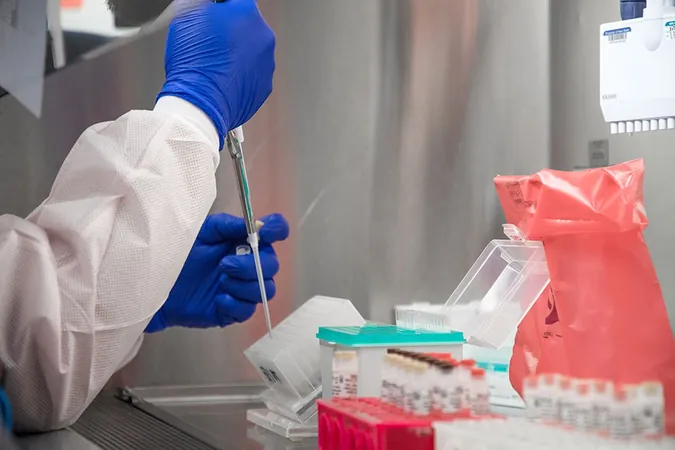
Breakthrough Study Reveals Lithium's Potential as a Game-Changer for Autism Spectrum Disorder Treatment!
2024-12-24
Author: Mei
In a groundbreaking announcement on December 23, researchers from South Korea have revealed that lithium, a well-known component used in electric vehicle batteries, might hold the key to treating Autism Spectrum Disorder (ASD). Led by Kim Eunjoon from the Institute for Basic Science’s Center for Synaptic Brain Dysfunctions, this pivotal research uncovers how the DYRK1A gene deficiency plays a significant role in autism symptoms and highlights lithium’s remarkable ability to repair neural damage and normalize behavior.
Autism Spectrum Disorder is a complex developmental brain disorder impacting social interaction, communication, and behavior, with about 80% of its causes attributed to genetic factors. Despite identifying over 1,000 genes associated with ASD, pinpointing a clear cause has proven challenging. Interestingly, the DYRK1A gene, located on human chromosome 21, is also implicated in Down syndrome and is linked to a variety of developmental issues including language delays and microcephaly.
The study examined mice genetically altered to lack the DYRK1A gene. Researchers noted significant changes in the brain structure, such as reduced synaptic density and inhibited neuronal development. Furthermore, these mice exhibited heightened anxiety, increased maternal seeking behaviors, and altered social interaction—mirroring symptoms commonly observed in humans with autism.
To explore treatment possibilities, the team administered lithium during the juvenile stages of these gene-deficient mice. The results were astonishing: lithium not only ameliorated key behavioral symptoms associated with autism but also stimulated brain growth and reversed microcephaly. Notably, the benefits of lithium were observed to extend well into adulthood, indicating that early treatment could foster enduring recovery in brain function.
Senior researcher Roh Jun-yeop elaborated on these findings, stating, "Lithium regulates the imbalance of neural connections and synaptic function, stabilizing the brain’s signaling system and facilitating smooth neural traffic." This suggests that strategic timing in drug administration could be crucial for achieving lasting improvements.
Kim Eunjoon emphasized the exciting implications of their research: "The lasting effects of lithium treatment into adulthood open the door for early diagnosis and intervention strategies that could significantly mitigate autism symptoms." Given lithium's established efficacy in treating psychiatric disorders like bipolar disorder, there is a growing anticipation that this could pave the way for personalized treatments specifically tailored for individuals with autism.
The full research findings are available in the recently released online edition of the international journal "Molecular Psychiatry."
As the scientific community looks forward to further developments, this study marks a potential paradigm shift in how we approach the treatment of Autism Spectrum Disorder, offering hope to countless families navigating the challenges of this complex condition. Keep your eyes peeled for more updates on this revolutionary discovery!



 Brasil (PT)
Brasil (PT)
 Canada (EN)
Canada (EN)
 Chile (ES)
Chile (ES)
 España (ES)
España (ES)
 France (FR)
France (FR)
 Hong Kong (EN)
Hong Kong (EN)
 Italia (IT)
Italia (IT)
 日本 (JA)
日本 (JA)
 Magyarország (HU)
Magyarország (HU)
 Norge (NO)
Norge (NO)
 Polska (PL)
Polska (PL)
 Schweiz (DE)
Schweiz (DE)
 Singapore (EN)
Singapore (EN)
 Sverige (SV)
Sverige (SV)
 Suomi (FI)
Suomi (FI)
 Türkiye (TR)
Türkiye (TR)